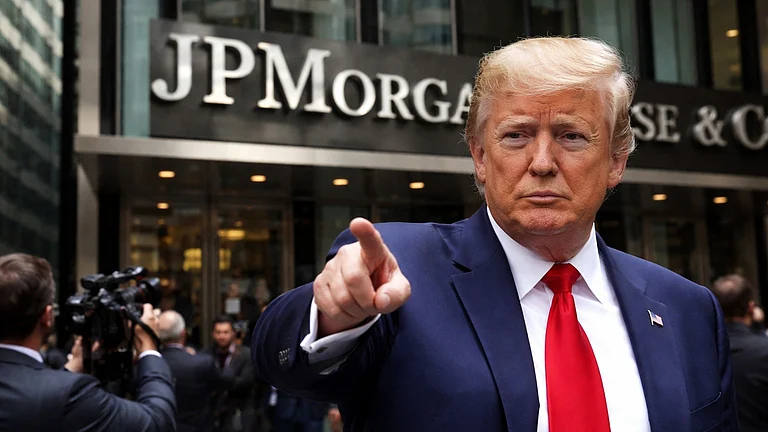JP Morgan Chase CEO Jamie Dimon said on Monday, September 23, that India is likely to become a $7 trillion economy by 2030, given the digital and physical infrastructure of the country that is attracting multinational companies under the leadership of Prime Minister Narendra Modi.
Speaking at JP Morgan’s annual investor summit in Mumbai, the American investment bank’s CEO pointed out the significance of geopolitics in determining the world economy, including the growing tensions in Ukraine and Lebanon. While speaking to media, he mentioned the federal reserve’s rate cut by half a percentage was probably the right move by the US central bank.
He also shared his insights on the Indian economy, geopolitics, and US presidential elections and federal rate cut.
“$7 trillion is achievable and you need strong leadership, as you’ve had with Modi,” Says JP Morgan’s CEO Jamie Dimon
Dimon, while recalling his first visit to India in 2005, pointed out the development the country has witnessed over the years are attracting multinational companies to invest. Additionally, he appreciated the digital and physical infrastructure, including the Aadhaar system, banking accounts, GST reforms, easing regulations, etc. The changes, coupled with the strong leadership of PM Modi, are likely to drive the nation towards becoming a $7 trillion economy, he added.
“...I went to a small building in the old financial district. And I think we did research on 15 or 20 companies. Today, we do research on close to 140 companies, which helps educate the world about Indian companies. We bank 850 multinationals here. We’ve got close to 55,000 employees in the corporate centre supporting our global operations and our technology,” Dimon told the Economics Times.
He shared his outlook on the growing uncertainties in the world. He said geopolitics is far more important for mankind than interest rates in Japan and the US. Currently there’s an oversupply of oil and gas, but given the uncertain geopolitical scenario in the coming year or two, there’s a possibility of an undersupply, he added.
“Europe had to change their flow due to Ukraine. This is a great lesson when we talk about the importance of safe, secure, reliable, affordable energy. If you look down the road, there’ll probably be an undersupply of oil,” Dimon told ET.
Moreover, commenting on how the change in leadership after the US election will impact the ongoing tensions, he said America’s foreign policy regarding Israel is likely to remain the same.
































